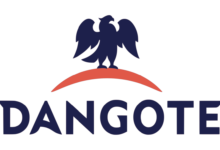Larson Inc. in the Nigerian International Market: Navigating Challenges and Embracing Opportunities

Larson Inc., a multinational corporation specializing in power, communication, construction, and control cables, established its presence in Nigeria in 2005 through a joint venture with a local partner. The Nigerian market, with its vast population and growing infrastructure needs, presented an attractive opportunity for Larson Inc. to expand its global reach and establish a strong foothold in the African continent.
Initial Success and Growth
The Nigerian operation initially experienced significant success, driven by the country’s economic growth and increasing demand for electrical infrastructure. Larson Inc.’s products were well-received by the Nigerian market, and the company quickly gained a reputation for quality and reliability. The joint venture partnership also proved beneficial, providing Larson Inc. with local expertise and market knowledge.
Challenges and Market Dynamics
However, the Nigerian market also presented unique challenges for Larson Inc. The country’s infrastructure development was hampered by bureaucratic hurdles, corruption, and a lack of skilled labor. Additionally, the Nigerian currency, the naira, was subject to significant fluctuations, which posed financial risks for Larson Inc.’s operations.
Despite these challenges, Larson Inc. remained committed to the Nigerian market. The company recognized the country’s long-term potential and believed that it could adapt to the local business environment. Larson Inc. implemented various strategies to mitigate risks and enhance its operations, including:
- Building strong relationships with key government officials and industry stakeholders
- Investing in employee training and development to address the skills shortage
- Adopting local procurement practices to reduce costs and improve supply chain efficiency
- Hedging currency risks to minimize financial exposure
Expanding Product Portfolio and Diversification
Larson Inc. also expanded its product portfolio to cater to the specific needs of the Nigerian market. The company introduced products specifically designed for the harsh environmental conditions in Nigeria, such as cables resistant to extreme temperatures and humidity. Additionally, Larson Inc. diversified its offerings to include other electrical products and services, such as transformers and power distribution equipment.
Navigating Political and Economic Turmoil
The Nigerian market remained volatile over the years, with periods of economic growth and stability followed by periods of political instability and recession. Larson Inc. faced challenges during these difficult times, but the company’s resilience and commitment to the market allowed it to weather the storms.
Current Status and Future Outlook
Today, Larson Inc. stands as a leading player in the Nigerian electrical industry. The company has a strong presence in the country, with a manufacturing plant, sales offices, and a network of distributors and dealers. Larson Inc.’s products are widely used in various sectors, including power generation and transmission, oil and gas, construction, and telecommunications.
Despite the challenges that still exist in the Nigerian market, Larson Inc. remains optimistic about its future prospects in the country. The company believes that Nigeria’s long-term economic potential is strong, driven by its large and growing population, abundant natural resources, and increasing urbanization.
Key Strategies for Success in the Nigerian Market
Larson Inc.’s success in the Nigerian market can be attributed to several key factors, including:
- A strong commitment to the Nigerian market and a willingness to adapt to local conditions
- A focus on building relationships with key stakeholders
- A willingness to invest in the development of local talent
- An innovative approach to product development and diversification
- A strong financial position and a risk management strategy
Lessons Learned and Recommendations for Other Companies
Larson Inc.’s experience in Nigeria provides valuable lessons for other companies seeking to enter or expand their presence in the African market. These lessons include:
- Conduct thorough market research and understand the unique challenges and opportunities of the African market
- Develop a long-term strategy and be prepared to adapt to changing market conditions
- Build strong relationships with local partners and stakeholders
- Invest in the development of local talent to address the skills shortage
- Adopt a flexible and innovative approach to business practices
- Implement a strong risk management strategy to mitigate financial and operational risks
Conclusion
Larson Inc.‘s journey in the Nigerian market demonstrates the potential for success in Africa, despite the challenges that exist. By understanding the local market, building strong relationships, and adapting to changing conditions, companies can overcome obstacles and achieve their business goals in Africa.














